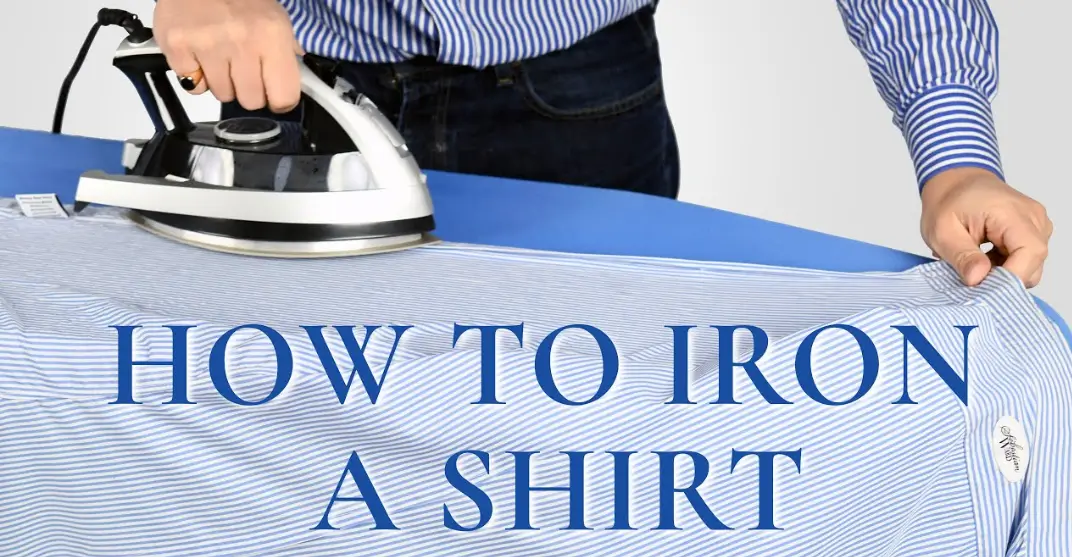
Ironing a dress shirt may seem hard, but with practice, it’s simple! In this guide, we’ll walk through each step to help you iron any dress shirt, from men’s dress shirts to dress shirts for women. A well-ironed shirt gives you a sharp look and builds confidence for any event.
Why Ironing Matters for Dress Shirts
Dress shirts are often made from cotton, linen, or blended materials, which can easily wrinkle. These wrinkles make even the best shirt look messy. Ironing helps your shirt look smooth and professional. It is especially important for events like job interviews, weddings, or formal dinners. A perfectly ironed shirt is a sign of care and attention to detail.
Preparing Your Shirt for Ironing
Before you start ironing, it’s essential to prepare your shirt. Here’s how:
-
Choose the Right Iron Setting
Check the label on your shirt for the correct iron setting. Most dress shirts are ironed at medium or high heat, but some fabrics need lower heat.
-
Fill the Iron with Water
Using water helps the iron create steam, which removes wrinkles faster. Most irons have a water chamber—fill it before you begin.
-
Use an Ironing Board
An ironing board gives you a flat surface, making it easier to iron. If you don’t have one, lay a towel on a table as an alternative.
Ironing Each Part of the Dress Shirt Step-by-Step
Let’s go through the steps to iron a dress shirt properly. By ironing each part in order, you can avoid creating new wrinkles.
Step 1: Start with the Collar
- Lay the Collar Flat:
Place the collar flat on the ironing board, facing up. - Iron from the Points to the Middle: Start from the collar tips and move toward the center. This keeps the collar smooth and avoids wrinkles.
- Flip and Repeat: Iron the other side of the collar for a crisp look on both sides.
Step 2: Move to the Cuffs
- Unbutton the Cuffs: Spread the cuffs flat on the ironing board.
- Iron from the Outside In: Begin at the outer edge and work towards the middle. Repeat on the other side of each cuff.
Step 3: Iron the Sleeves
- Lay One Sleeve Flat: Place one sleeve flat on the ironing board. Smooth it out with your hand to remove creases.
- Iron in Sections: Start with the area near the shoulder and work your way down to the cuff.
- Flip and Repeat: Turn the sleeve over to iron the other side. Repeat for the second sleeve.
Step 4: Iron the Shirt’s Back
- Lay the Back Flat: Place the back of the shirt on the ironing board.
- Iron from the Top Down: Begin at the yoke (the top back part) and work your way down. Make sure to smooth out any wrinkles with your hand as you go.
Step 5: Finish with the Front
- Iron One Side at a Time: Start on one side of the front, working around buttons instead of over them.
- Be Careful with Button Areas: Avoid ironing directly on buttons. Instead, press around them to keep them secure.
- Repeat on the Other Side: Move to the other side of the front and repeat the process.
Tips for Different Dress Shirt Fabrics
Not all fabrics iron the same way. Here are some helpful tips for various shirt types:
- No Iron Dress Shirts: These shirts require less ironing but still benefit from a quick touch-up to stay sharp.
- Slim Fit Dress Shirts: Use a medium setting to avoid stretching the fabric.
- Performance Dress Shirts: These often require low heat, so check the care label before ironing.
- Twill Shirts and Poplin Shirts: Twill shirts have a thicker weave and may need more heat, while poplin shirts are smooth and iron easily.
Special Ironing Tips for Colorful and Patterned Shirts
Some shirts have special designs, colors, or patterns. Here’s how to handle these with care:
- Striped and Checkered Shirts: Iron along the lines of the stripes or checks to avoid distorting the pattern.
- Black and Dark Colors: Use a lower temperature and place a cloth between the iron and the shirt to prevent shine marks.
- White Dress Shirts: These can handle higher heat, but avoid lingering in one spot to prevent yellowing.
- Chambray and Denim Shirts: Use medium heat and iron carefully. These fabrics are thicker, so work in small sections.
Frequently Asked Questions About Ironing Dress Shirts
How often should I iron a dress shirt?
Iron your shirt every time you wear it to keep it looking fresh. For short-sleeve dress shirts, you may only need to touch up the collar and sleeves.
Can I iron my shirt if it’s not fully dry?
Yes, slightly damp shirts iron more easily and wrinkle less. However, be cautious with delicate fabrics like silk.
Is steaming a good alternative to ironing?
Yes, steaming is a great option for a quick wrinkle fix, especially for casual dress shirts or travel.
The Best Place to Buy Dress Shirts and Ironing Essentials
For quality dress shirts and unique clothing needs, The Apparel Factory has a wide selection of products. We offer brands like Brooks Brothers, Bulwark, Burnside, Devon & Jones, Dickies, Red House, Red Kap, and Port Authority. Whether you need blank dress shirts, 3XL dress shirts, or short-sleeved dress shirts, our collection has you covered.
We specialize in providing bulk and wholesale orders, which are perfect for businesses or large events. You can also enjoy customization options, such as screen printing, embroidery, heat-transfer printing, applique, and laser etching services.
conclusion
Ironing a dress shirt might seem daunting at first, but with these tips, you can master it in no time. A well-ironed dress shirt helps you look polished, confident, and ready for any event, from business meetings to special celebrations. By following the right steps and caring for different fabrics, you’ll make your dress shirts last longer and always look their best. Remember, The Apparel Factory is here to meet all your dress shirt needs, with a variety of styles and customization options to keep you looking sharp.
Published on:
October 31, 2024





